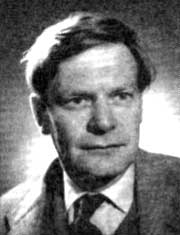
Born in 1910, Thomas Hodgkin went to school at Winchester and read Classics and Philosophy at Balliol College, Oxford. He worked for several years in Palestine, first as an archaeologist and later in the administration.
Resigning on political grounds he took up adult education in Cumberland and afterwards as Oxford Staff Tutor in cooperation with the W.E.A. in North Staffordshire. From 1945 to 1952 he was Secretary to the Oxford University Delegacy for Extra-Mural Studies, and a Fellow of Balliol; during this period he was responsible for initiating extra-mural classes in Ghana and Nigeria.
Latterly he has led a nomadic life and travelled in many parts of Africa. He has written for journals and held visiting lectureships at Northwestern University, McGill University, and University College of Ghana. He published Nationalism in Colonial Africa in 1956 and Nigerian Perspectives in 1960. He is at present engaged on a study of Islam and modern political movements in Africa south of the Sahara.
Thomas Hodgkin married in 1937 Dorothy Crowfoot, Fellow and Tutor of Somerville College, Oxford, now Wolfson Professor in X-ray crystallography. They have three children and a grandchild.
